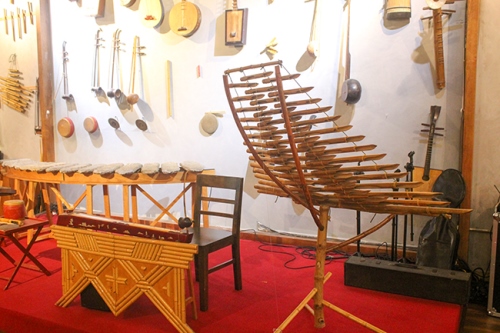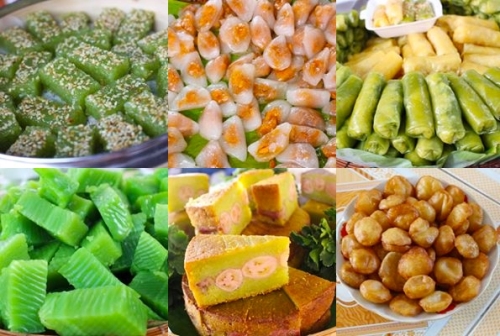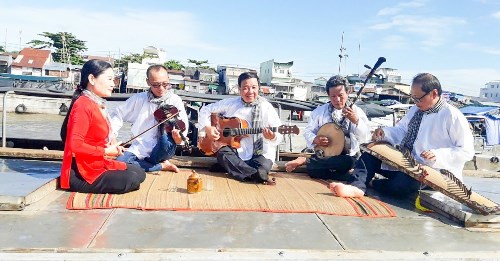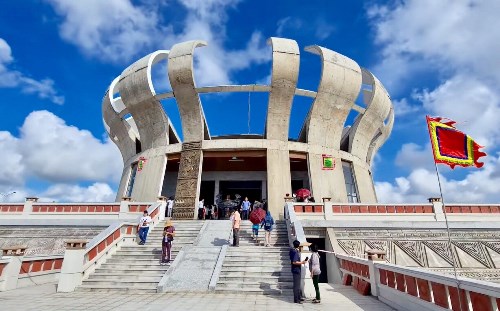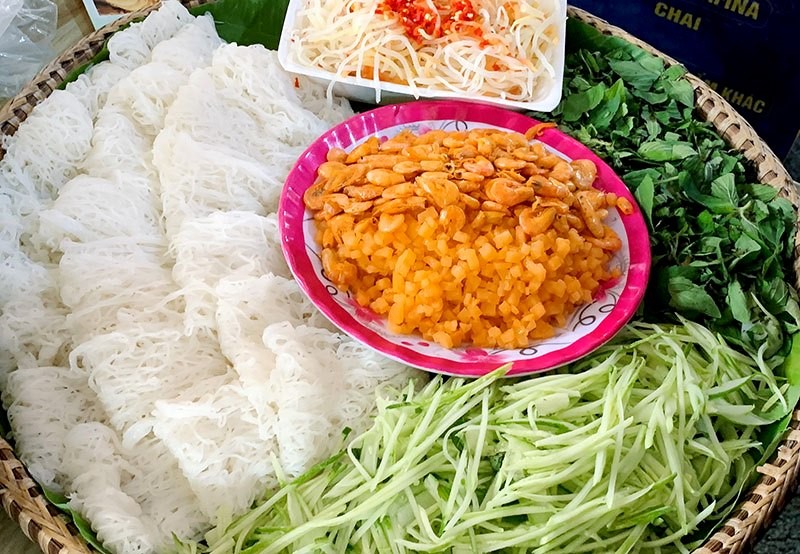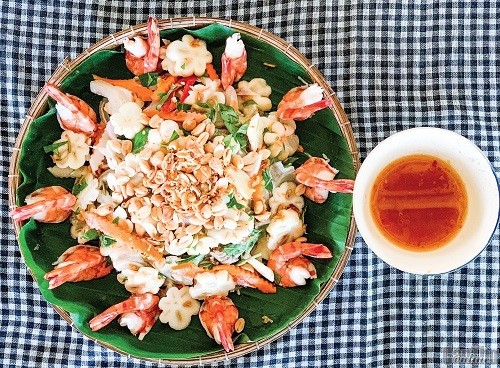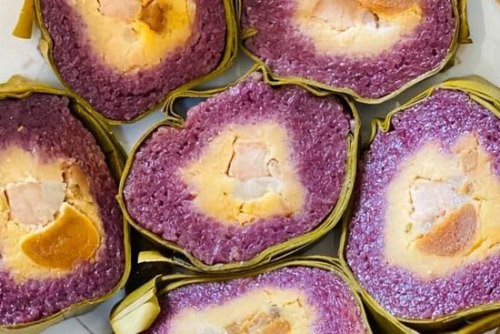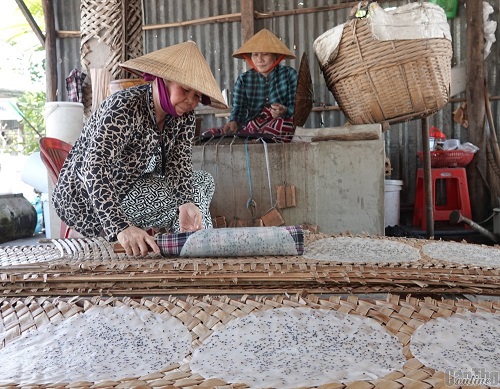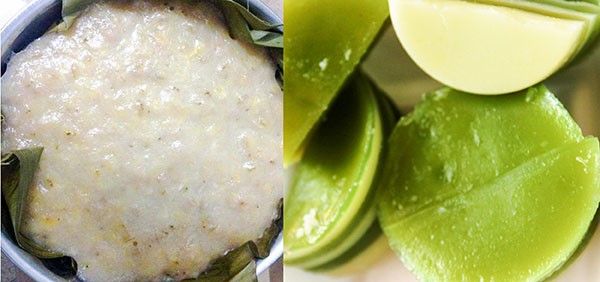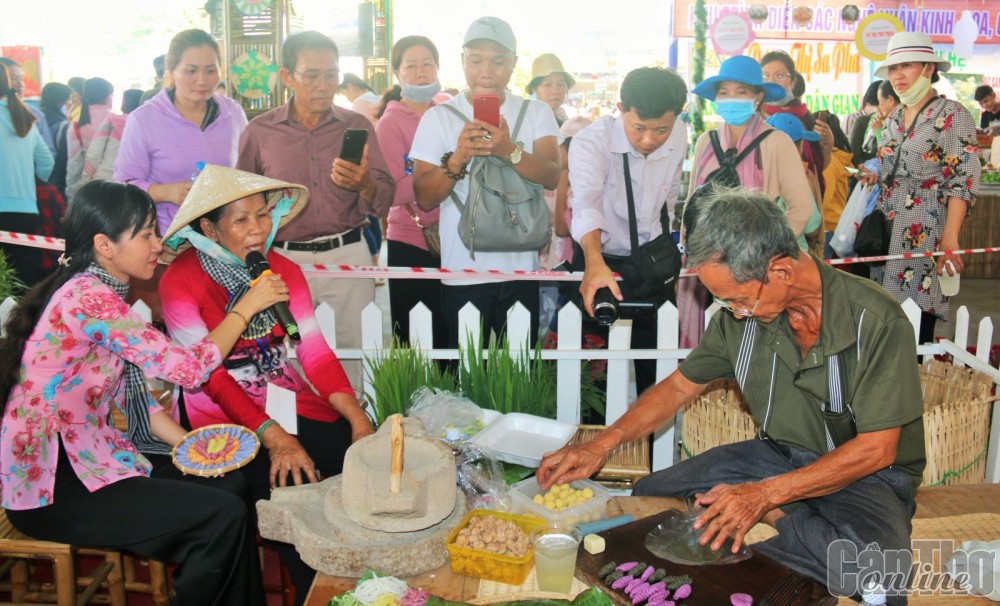
in the midst of the coronavirus outbreak, Community Tourism in Son Islet still maintains its own pace of development. Specifically, they calmly stop their operation and restarts at the right time. Moreover, each time it is back to action, there are new creations from the treasure of life and folk activities. The story of Son Islet opens new doors for tourism which is exploiting the local culture and the indigenous people to limit risks and make a difference.
The first outbreak of COVID-19 in March, Can Tho tourism has temporarily suspended for more than 2 months. At that time, the locals in Son islet, just like in many other places, had difficulties in doing business as tours to Son islet were canceled by nearly 40 partners. So they were back to take care of gardens, the islet’s landscape and tried creating new products and services. As a result, in May, the tour program, named “Con Son, a new day” exploiting the indigenous culture was born to welcome visitors back to Son islet.
Con Son brought new vitality to tourism at that time with the products and services that were the trademark of the southern countryside. Traditional crafts are presented to visitors such as sharping chopsticks, knitting hammocks, making glutinous rice chupatties or popcorn, trying to dry out ditches to catch fish on land, fish massage, trying meals of the land reclamation time, etc. Mr. Ly Van Bon, the owner of Bay Bon Fishing Raft, says: “Our culture has many great things and visitors like to experience the most authentic things. The people on Son islet always want to preserve the local cultural characteristics and create new products for tourism. The most important thing is to maintain partnership and solidarity. Doing tourism is to help each other and creativity is to have a common product for the community ”. Therefore, in Son islet, each family has their own products and they work together to create a chain of cultural experiences, customs which is loved by many tourists.
When the chilly cold air signal the coming of the New Year, the people of Son islet are busy working on new programs to serve tourists and carefully prepare for the “graduation exam” in English. The English class for the community of Son islet started in the last days of August when the second wave of COVID-19 arrived and Son islet stopped receiving tourists. Having lots of free time, people in Son islet decided to improve themselves with English. An English class was established with 30 students at Mr. Bay Bon's fishing raft. The youngest student is 8 years old and the oldest one is over 60 years old. The graduation test is for each person to introduce their travel products and services in English. Furthermore, the locals also learned how to perform first aid, widen their knowledge regarding sustainable tourism from experts, cultural researchers, instructors, etc. As a result, the people on Son islet will become more confident when welcoming back tourists with many products typical of the village on Tet holiday for the year-end tourist season and the new year.

The English class on Mr. Bay Bon’s fishing raft.
Son islet community-based tourism perseveres amid the COVID-19 pandemic thanks to the experience from over 5 years of development with many changes. Moreover, it still retains its indigenous culture and the community’s unity. Ms. Phan Thi Kim Phuoc (Nam Phuoc), owner of Song Khanh garden, expresses: “Right from the beginning, we decided to do business in tourism, but we had to maintain the lifestyle and preserve our indigenous culture. We treat the visitors the same way we treat each other in the village”. Mr. Tran Hoang Tuyen, Deputy Director of Centre for Business Research and Enterprise Support (BSA) - Can Tho branch, says: “The fish sauce of Ms. Phan Kim Muon (Bay Muon) is popular not necessarily because it is the best, but it is the most genuine fish sauce. The people on Son islet work with their available values in the most honest way. These are the precious indigenous values, the unique cultural identity that creates a distinct feature for the Son Islet ”.

Green and fruitful gardens on Son Islet.
Son islet is loved not only because it still retains its beautiful scenery of gardens, fish ponds, rivers in the heart of the city and interesting experiences, but more importantly, is the people living there. Mr. Bay Bon, Mrs. Be (the boatwoman), Ms. Nam Phuoc, Bay Muon, Nam Minh ... are all unique individuals in the community imbued with the cultural identity of the Southern region. They are the locals of Son islet with indigenous knowledge, understanding the value of traditional culture in tourism. The story of Son islet shows that indigenous culture is the foundation for sustainable tourism. Even though tourism is affected by external forces, cultural depth will be the foundation to limit risks, create long-term value and sustainable development for tourism.
Source: Can Tho Newspaper - Translated by Hoang Dat





